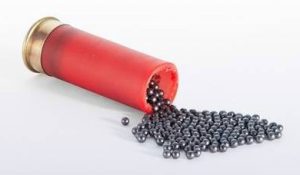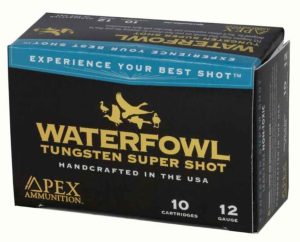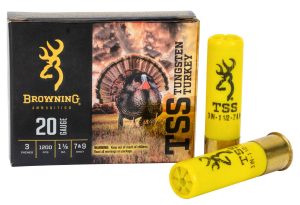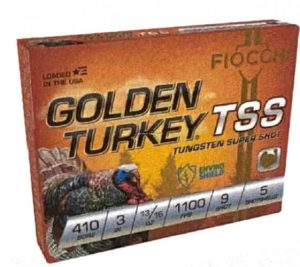Weighing the Price and Performance of Tungsten Shotgun Shells
Tungsten shotgun shells have experienced a significant surge in popularity over the past few years. This rise can be attributed to several factors. First, there is the issue of lead contamination in the environment, which has led to an increasing number of hunters and shooters seeking out safer alternatives. Second, improvements in tungsten technology have led to the production of more affordable and high-quality tungsten shotgun shells, making them a more viable option for those in the shooting sport.
Moreover, the performance benefits of using tungsten over lead are becoming more well-known. The superior density and hardness of tungsten mean that it can deliver better penetration and range than lead, making it a more effective choice for shooting. Also, because tungsten is non-toxic, its use is not subject to the same restrictions as lead, making it a more flexible and practical choice for hunters in areas where the use of lead is banned.
However, tungsten shotgun shells are significantly more expensive than lead. The box of 25 cartridges can costs up to $60.00 compared to $10.00 for a similar box of lead loads.

The rise of tungsten shotgun shells can also be seen as part of a broader trend towards environmentally friendly shooting sports. As increasing numbers of shooters embrace the idea of responsible hunting, the use of non-toxic, biodegradable materials like tungsten is becoming more commonplace. The rise of tungsten shotgun shells is, therefore, a reflection of wider changes in the shooting community’s attitudes and practices.
The Superior Advantages of Tungsten Over Lead
Tungsten has several advantages over lead when used in shotgun shells. The first and most significant of these is its density. Tungsten is significantly denser than lead, which means that a tungsten shotgun shell can carry more energy and deliver more impact at a given range. This makes tungsten shells particularly effective for hunting larger game, where extra power and penetration are often necessary.

Another advantage of tungsten is its hardness. Tungsten is much harder than lead, which means that it deforms less upon impact. This results in a tighter, more controlled spread of pellets, which can improve shooting accuracy and consistency. Additionally, because tungsten is harder, it can withstand the high pressures of modern shotgun loads without breaking or deforming, making it more reliable and durable than lead.
And unlike lead, tungsten is a non-toxic material. This makes it a safer option for both the shooter and the environment. The use of lead in ammunition has been linked to numerous environmental and health problems, and its use is becoming increasingly regulated. Tungsten, on the other hand, poses no such risks and is thus an ideal material for use in shotgun shells.
How Tungsten Shotgun Shells Impact Shooting Performance
Tungsten shotgun shells can significantly improve shooting performance. Due to their greater density and hardness, tungsten shells deliver more energy, penetrate deeper, and maintain a tighter pattern than lead shells. This can make a significant difference in hunting scenarios, where a clean, quick kill is the objective.

The improved pattern consistency offered by tungsten shells can also translate into better accuracy. Because the pellets in a tungsten shell deform less than those in a lead shell, the pattern is tighter and more predictable. This can help shooters hit their targets more consistently, particularly at longer ranges.
The greater durability of tungsten shells can also enhance shooting performance. Because tungsten is harder than lead, tungsten shells can withstand the high pressures and velocities of modern shotgun loads without breaking or deforming. This means that tungsten shells can deliver consistent performance even under challenging shooting conditions, making them a reliable choice for serious hunters and competitive shooters.
Embracing the Ecological Benefits of Tungsten Shells
Perhaps one of the most compelling reasons to switch to tungsten shotgun shells is their ecological benefits. Unlike lead, tungsten is a non-toxic material that does not pose a risk to the environment. This means that shooters can enjoy their sport without worrying about contributing to lead pollution.
Moreover, because tungsten is a denser material than lead, less of it is needed to achieve the same ballistic performance. This results in fewer resources being used and less waste being produced, further enhancing the environmental credentials of tungsten shotgun shells.

Finally, the use of tungsten shotgun shells can also help to promote responsible hunting practices. By choosing non-toxic, biodegradable materials like tungsten, hunters can demonstrate their commitment to protecting the environment and ensuring the sustainability of their sport. The ecological benefits of tungsten shotgun shells, therefore, go beyond simply reducing pollution – they also contribute to a more sustainable and responsible shooting culture.
Tungsten shotgun shells represent a new era in ammunition, bringing advancements in performance and sustainability. But they do come at a steep financial price. Still, the benefits they offer over traditional lead-based shotgun shells are substantial, from improved ballistics and shooting performance to a lessened environmental impact. The transition to tungsten shotgun shells is more than just a trend; it’s a testament to the evolution of shooting sports towards safer, more efficient, and more ecologically responsible practices. As with most leading-edge products, the price of tungsten shells could drop over time. In the meantime, by embracing tungsten shotgun shells, shooters can be part of this transformative change.
# # #


Comments